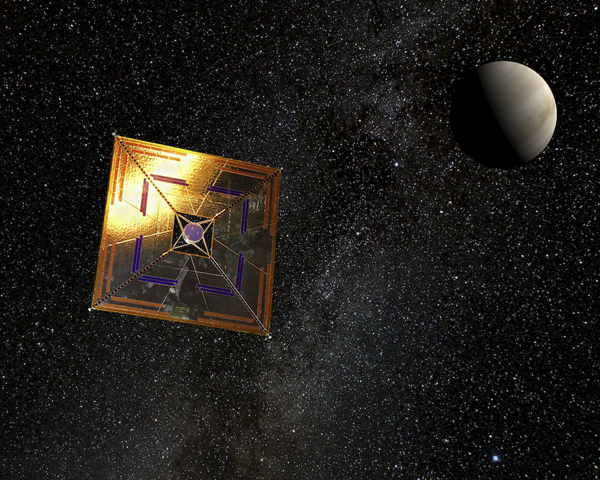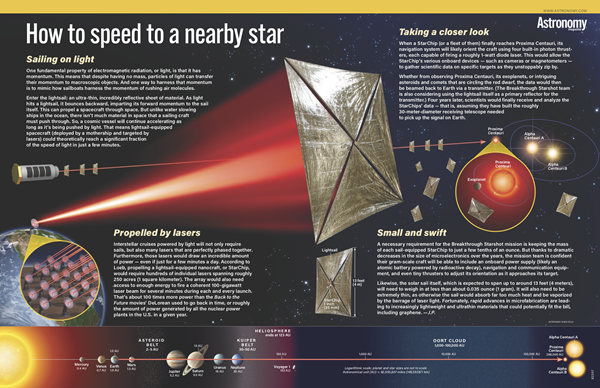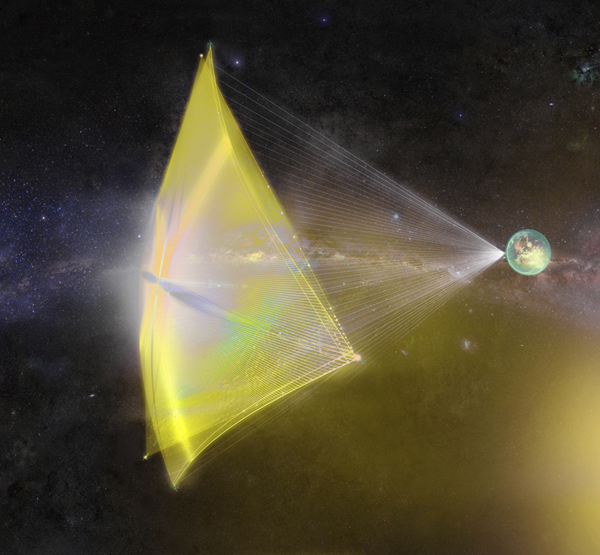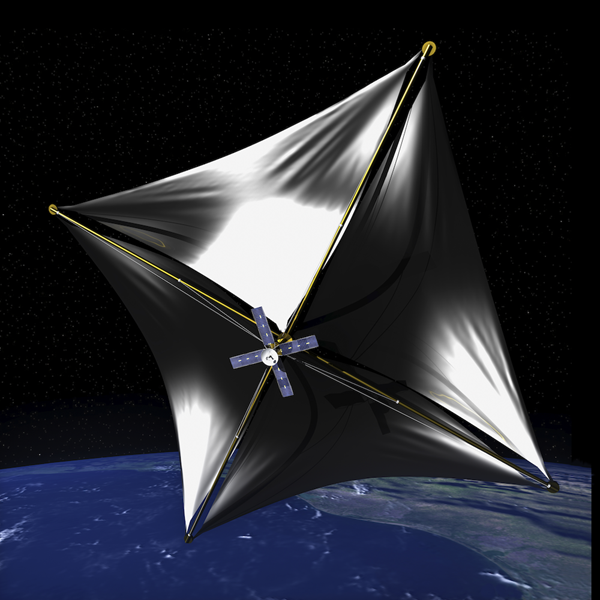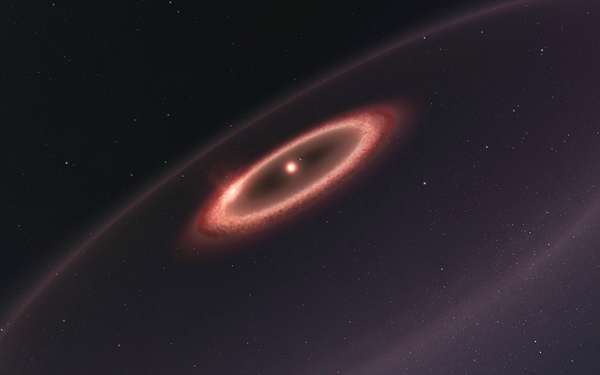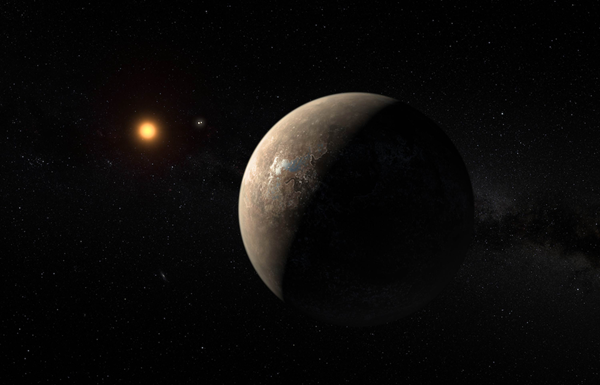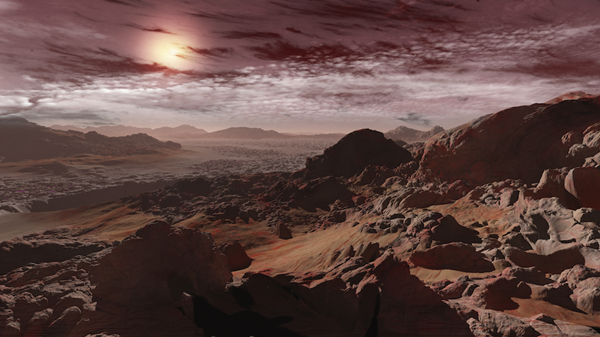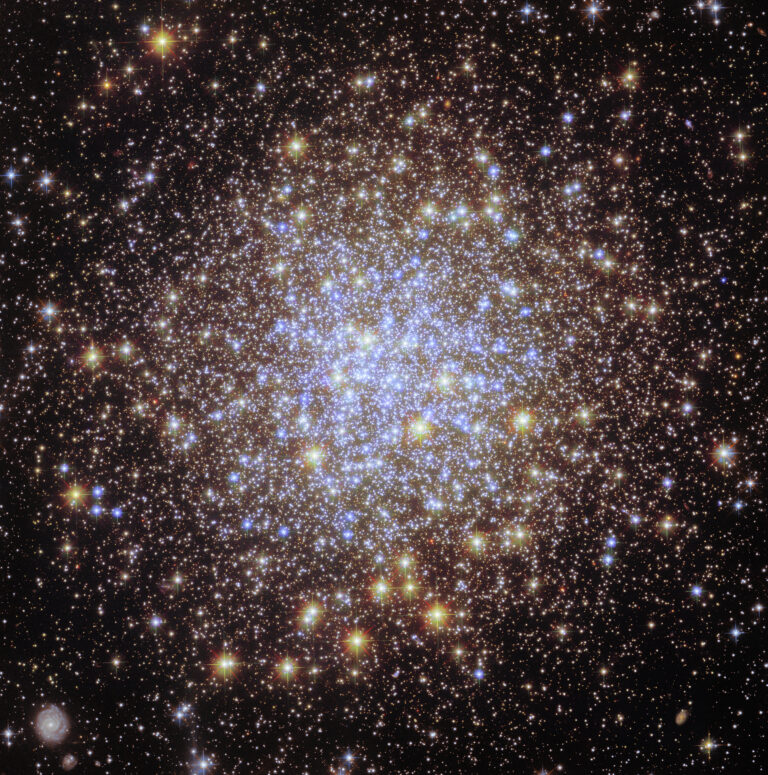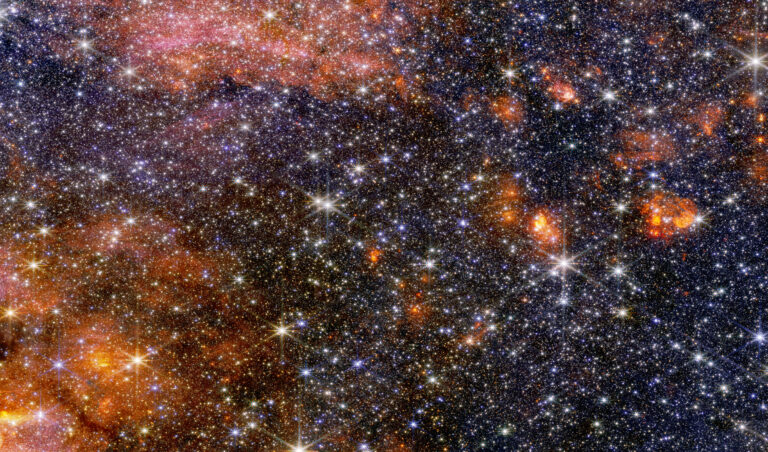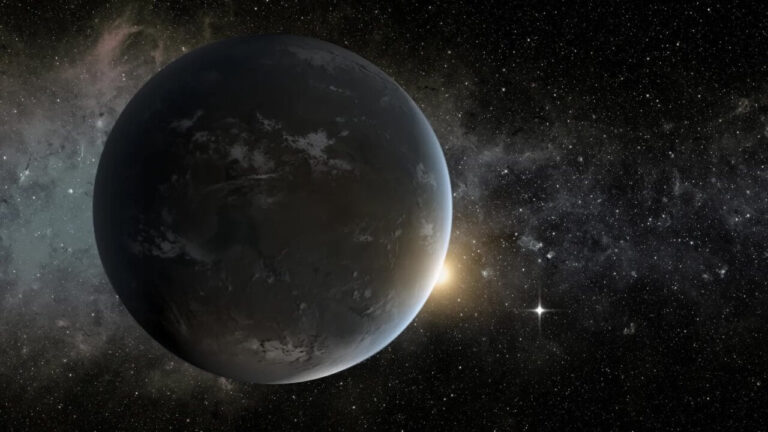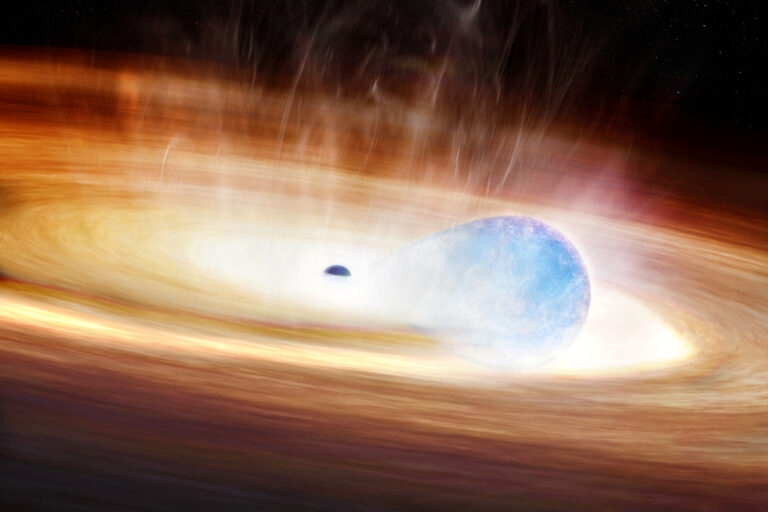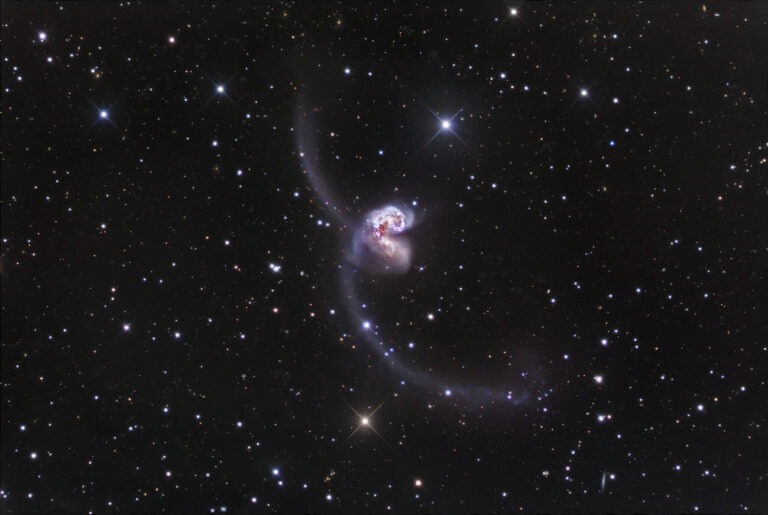Loeb first pondered the possibility that the solar system’s first known interstellar interloper was an extraterrestrial craft back in late 2017, shortly after astronomers discovered the object (formally known as 1I/2017 U1) using the Pan-STARRS telescope at Haleakalā Observatory in Hawaii. But it wasn’t until he began exploring what he himself describes in his book as “an exotic hypothesis, without question” that he began to take it seriously — if only as a thought experiment.
He drew his ‘Oumuamua hypothesis from what was fresh in his mind. At that point, Loeb had spent the previous few years working with some of the world’s brightest and most ambitious people to develop an audacious interstellar mission that would use lightsails to venture to a nearby star. The moonshot project, fittingly called Breakthrough Starshot, aims to create a tiny spacecraft equipped with a sail that will catch a brief burst of powerful laser light, propelling it to some 20 percent the speed of light. At that rate, such a craft would arrive at the nearby star Proxima Centauri within about 20 years of launch.
Visiting Proxima Centauri
Exploring the world and universe around us is one of humanity’s most instinctual traits. And although this exploration is often difficult and dangerous, the potential rewards tend to justify the risks. Humans are willing to sacrifice a lot to learn what lies beyond the horizon. And now, for the first time in history, humanity seems to be on the precipice of literally reaching out and touching the stars.
It’s not going to be easy, though. The closest star to Earth after the Sun is Proxima Centauri — a red dwarf with just over one-tenth the mass of our star located some 4.24 light-years away in the Alpha Centauri system. Given our Milky Way is some 100,000 light-years across, 4.2 light-years might seem like a stone’s throw. But it’s not. At that distance, which is equivalent to about 25 trillion miles (40 trillion kilometers), it would take our swiftest modern spacecraft about 100,000 years to reach our nearest neighbor. After all, it takes light — the Usain Bolt of the universe — more than four years to run the same race.
That’s the basic premise of Breakthrough Starshot: Design a lightsail-equipped nanocraft (named StarChip), give it a powerful push, and let it zip off to Proxima Centauri at more than 130 million mph (216 million km/h). Oh, and while we’re at it, we might as well send a fleet of hundreds or thousands of StarChips to ensure at least some succeed.
Simple, right? In theory, yes. In reality, it’s going to take a huge amount of work, many technological breakthroughs, and, of course, a ton of money. But what better time than the present to start such a humanity-defining mission?
Setting sail in space
To quickly travel to another star, it’s clear a spacecraft must be small. But it also needs a strong push to get started. One possible way to do that is borrow a tool pirates used to help them plunder the seven seas: sails. However, instead of catching wind, StarChip’s sails would catch powerful beams of laser light.
Loeb, chair of Breakthrough Starshot’s advisor board, is quick to note that the first mention of cruising through the cosmos on celestial winds dates back to a 1610 letter from astronomer Johannes Kepler to his friend Galileo Galilei. In it, Kepler writes, “With ships or sails built for heavenly winds, some will venture into that great vastness.” However, the true potential of using sunlight to sail through space wasn’t fully recognized until the work of Soviet rocket pioneers Friedrich Sander and Konstantin Tsiolkovsky in 1924. Then, in the 1960s, Hungarian astrophysicist György Marx pushed the idea further by pondering whether a directed beam of energy, rather than sunlight, could be used to propel such a spacecraft.
Despite the daunting, multipronged challenge of interstellar travel, in 1985, Forward created actual plans for an ultra-light interstellar probe powered by microwave lasers, or masers. He called it Starwisp and, in the 1990s, NASA Glenn Research Center scientist Geoffrey Landis jumped into the fray to elaborate on Forward’s basic design. But Starwisp never took flight. In 2005, the Planetary Society launched its own solar sail, Cosmos-1, but it failed to reach orbit.
Finally, in 2010, nearly a century after the notion of sailing on sunlight was first outlined in detail, the Japan Aerospace Exploration Agency (JAXA) successfully launched a solar sail named Interplanetary Kite-craft Accelerated by Radiation of the Sun (IKAROS), which hitched a ride to Venus with the climate orbiter Akatsuki. Once in position, IKAROS cleverly spun at some 25 revolutions per minute to unfurl its 46-foot-wide (14 m) sail, which was just 0.0003 inch (7.5 micrometers) thick — or about one-third the width of a human hair. Within a month, JAXA reported photons from the Sun were indeed accelerating IKAROS as planned, boosting its speed by a relatively modest 890 mph (1,430 km/h). And by utilizing adjustable LCD panels embedded near the edges of its sail, the spacecraft was even able to adjust the force pushing against it, changing its orientation at will.
With the technology behind lightsails finally proven to work in space, Israeli-Russian billionaire Yuri Milner picked up the ball a few years later. In May 2015, Loeb says, Milner nonchalantly asked him to look into the idea of interstellar spacecraft that could sail on light. The task took the eternally inquisitive Loeb and his team some six months to exhaustively research.
By early 2016, Milner was convinced an interstellar mission was feasible — or at least soon would be if technology continued to sprint forward. He officially kicked off the Breakthrough Starshot project by contributing $100 million of his own money to fund proof-of-concept research and development not just for lightsails, but also for the other advanced technology required to send a craft to another star within a generation. Ever since, dedicated scientists and engineers have been tirelessly working to make this ambitious dream a reality, taking advantage of additional funding from multiple NASA grants.
Starshot progress so far
It’s important to remember that Breakthrough Starshot is still in its early infancy. The initiative has made some impressive strides, but there’s still a long way to go. For instance, if Breakthrough Starshot is really going to accelerate a spacecraft to 20 percent the speed of light, that craft will need to be roughly 1/1,000 the mass of IKAROS, which weighed in at about 4.4 pounds (2.2 kilograms). That means Starshot will have to pack everything it needs for a four-year interstellar trip into a suitcase no heavier than a few paperclips.
Fortunately, thanks to Moore’s law — which predicts a biennial doubling in the number of transistors that can fit on a microchip, enabling smaller, more powerful devices — that challenge is quickly becoming less of an issue. Tiny electronics already exist that are capable of some pretty amazing things. For instance, engineers have developed affordable cameras that weigh around a gram and are able to capture resolutions of at least 200 by 200 pixels. That’s not much by today’s smartphone standards, but it’s still sharp enough that one mounted to a StarChip could resolve exoplanetary continents and oceans as it zips by. And the Breakthrough Starshot team has their bar set even higher: They are counting on technological improvements in upcoming years that will allow for ultralight cameras capable of snapping roughly 20-megapixel pics.
However, the Starshot team has successfully launched other prototype craft in recent years, testing various aspects of their design and technology. For instance, in 2017, researchers sent six tiny craft, each weighing about 0.14 ounce (4 grams), into low Earth orbit. Dubbed Sprites, these chips included solar panels, computers, sensors, and communication equipment on a square frame just 1.4 inches (3.5 cm) wide. And though the researchers never established communication with most of the Sprites, they did get a signal from at least one, proving such miniaturized communication and power systems can function in space.
Then in 2019, the initiative sent another tiny prototype some 100,000 feet (30,500 m) above Earth to snap pictures of our planet’s surface. The test captured some 4,000 shots during its flight, spawning much discussion about what equivalent images of the two known exoplanets around Proxima Centauri might look like.
A long way to go
With more than $100 million in funding so far, Breakthrough Starshot is already off to a strong start, but it will inevitably cost billions to become a reality. However, according to Loeb, that puts it right in line with some of the world’s other most ambitious (and expensive) science projects, such as the Large Hadron Collider and the upcoming James Webb Space Telescope, which cost about $5 billion and $10 billion, respectively. Fortunately, as technology matures, the team expects the cost of each launch to fall to a few hundred thousand dollars. That’s still a lot of money, but obtaining up-close views of our nearest exoplanetary neighbors borders on invaluable.
In the likely best-case scenario, Breakthrough Starshot might begin launching StarChips to Proxima Centauri by the mid-2030s. Factoring in 20 years of travel time and four more years of waiting for the data to make it back to Earth, researchers wouldn’t get the first up-close and personal views of a star and planets beyond our solar system until at least 2060. And Milner said in a 2016 interview that it will likely take closer to a generation (perhaps 25 to 35 years) before the first trip is underway.
Supporting and funding a project that, optimistically, doesn’t launch until 2060 might seem like a frivolous venture to some — especially considering the slew of pressing events that have unfolded on Earth so far this decade. But as award-winning Cosmos writer and producer Ann Druyan, a member of the Breakthrough Starshot advisory board, said during a 2016 press conference announcing the initiative: “Science thinks in timescales of billions of years. And yet, we live in a society that only thinks in terms of, generally, the balance sheet of the next quarter or the next election. … So, this kind of thinking that looks at a horizon that’s 35 years away — possibly 20, possibly 50 — is exactly what’s called for now, because it’s this kind of multigenerational enterprise that nets us such great results.”
Loeb shares that same sentiment but puts it more succinctly by quoting Oscar Wilde: “We are all in the gutter, but some of us are looking at the stars.”
[Correction: This article has been updated to reflect the fact that Yuri Milner is Israeli-Russian, not Russian as a previous version stated.]

